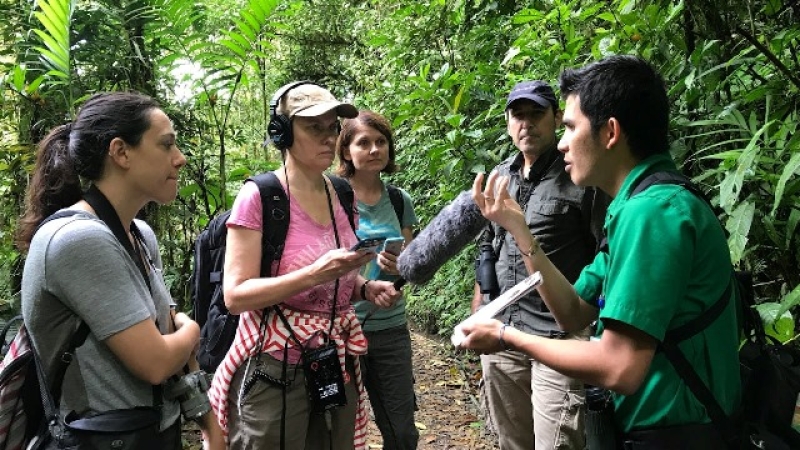- Power generation at Payra Thermal Power Plant 1st unit starts after a month |
- Irregularities, injustice will no longer be accepted in politics: Jamaat Ameer |
- 2 arrested in Jhenaidah for allegedly selling madrasa student |
- Koko’s wife campaigns for Tarique in Dhaka-17 |
- Bangladeshi Expats Cast 4.58 Lakh Postal Votes |
What US climate retreat means for Asia

The shutdown of US foreign aid will affect numerous independent media outlets in the Global South, including those that were set to receive grants from Internews Earth Journalism Network (EJN) this year. Image- EJN via Eco-Business
Gabrielle See, Finance correspondent, Eco-Business
As expected, the first month of Trump 2.0 has seen the climate-denying United States president dominating the media cycle – so much so that the press secretary to former first lady Jill Biden has aptly called him “America’s assignment editor”.
For the rest of the world, the effects of his presidency unfortunately extend far beyond his electorate. Since returning to office, Donald Trump has withdrawn from the Paris Agreement, rolled back fossil fuel production limits for the world’s top oil and gas producer, and pulled back from Indonesia's Just Energy Transition Partnership (JETP).
A freeze on US foreign aid now threatens the future of media outfits in developing Asia, which faces the brunt of climate change impacts and where robust journalism has become more critical than ever.
Over the past week, global media development organisation Internews as well as a few human rights groups in the region have suspended their projects due to US funding cuts, in some cases impacting climate journalism grants, Eco-Business has learnt. While other non-profits in the region haven't yet felt the impacts from Trump's attack on the world's single largest aid donor USAID, one warned that the rise of right-wing regimes in the West could create a “ripple effect” for NGO funding in Asia.
But Asia’s finance executives remain bullish about climate action in the region – highlighting China and Asean's leadership in the region, even amid their US counterparts’ retreat from global climate alliances like the Net Zero Banking Alliance and the Net Zero Asset Managers initiative. In our latest Eco-Business podcast, we dive into the progress of transition finance in Asia and why investors in the fast-growing economic bloc will continue betting on decarbonisation's long-term value as climate risks heighten.

